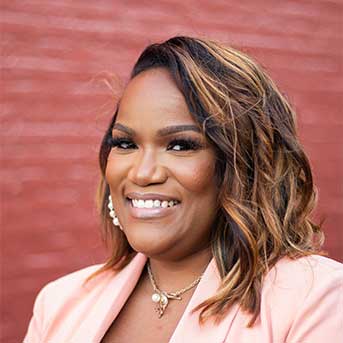
COBRA stands for the Consolidated Omnibus Budget Reconciliation Act, which was passed in 1985. COBRA ensures the right of employees who have lost their jobs to continue with their former employer’s health insurance plan.
COBRA is not itself an insurance company or an insurance plan. It refers to a law that gives people the ability to have access to health insurance in between jobs.
However, it’s important that former employees who plan to use COBRA-extended health insurance coverage know that COBRA has a time limit, usually 18 to 36 months.
Another constraint to be aware of is that people who elect to receive COBRA benefits often have to pay the entire monthly premium for their insurance, plus a 2% administrative fee.
Their former employer may have paid a significant amount of this premium previously, with employees paying the rest out of their pay.
Does COBRA Cover Rehab?
Yes, COBRA will cover at least some part of alcohol and drug rehab treatment. However, keep in mind that COBRA is a law, allowing the continuation of insurance benefits you previously had.
Due to the Affordable Care Act and the Mental Health Parity and Addiction Equity Act of 2008, most health plans are required to cover addiction treatment as part of essential health benefits.
Substance Abuse Treatment Services Covered By COBRA
The COBRA extension of your healthcare plan will cover the same treatment services that your plan covered previously.
Cobra Coverage By Treatment Type
Many health insurance companies cover a range of treatment types and settings to help people get the treatment they need for lasting recovery from substance use disorder (SUD).
Since it depends on what your health insurance plan was before COBRA, we’ve provided information about what to expect with different levels of care.
COBRA Plan Types
COBRA welcomes as many plan types as are available to employers for their employees.
In general, there are three types of health insurance plans:
- those that have a low monthly premium in exchange for a high deductible
- those that strike a balance where the monthly premium is a little higher and the deductible is a little lower
- those that have a high monthly premium in exchange for a low deductible and other lower out-of-pocket expenses like co-pays
How To Use COBRA Coverage For Substance Abuse Treatment
You can use COBRA coverage the same way you would have used your insurance before the qualifying event that led you to COBRA.
Qualifying events for COBRA coverage include:
- being let go from your job (unless it is for gross misconduct)
- voluntarily leaving your job
- experiencing divorce or legal separation (if you were covered under your spouse’s insurance plan)
COBRA is also only for qualifying beneficiaries.
Qualifying beneficiaries include:
- employees
- their spouses
- their domestic partners (in some states)
- their dependent children
COBRA Co-Pays And Deductibles For Addiction Treatment
Co-pays and deductibles can vary widely in health insurance. Some plans have high co-pays and large deductibles, while other plans have much more manageable out-of-pocket expenses.
Whatever your deductible, co-pays, and coinsurance were before you elected to have COBRA benefits, they will remain the same.
The one important difference is that you will have to pay your monthly premium.
What Addictions Does COBRA Cover?
Insurance companies usually cover treatment for most forms of substance abuse.
Covered SUDs often include:
- alcohol use disorder
- opioid use disorder
- prescription drug addiction
- stimulant use disorder
Check with your insurance company to see if there are limitations or exceptions. Whatever your plan covered before COBRA is what will be covered through COBRA.
What If My Insurance Plan Doesn’t Cover The Treatment Program I Need?
If you can’t find insurance coverage for addiction treatment services you need, there are other options to consider.
Many rehab centers offer payment plans or other payment options such as scholarships or a sliding fee scale that adjusts treatment costs based on your income.
Rehab centers may also receive block grants or grant awards from the Substance Abuse and Mental Health Services Administration (SAMHSA) and then pass the savings on to their clients.
Finally, consider applying for a government-funded health insurance program such as Medicare or Medicaid.
Finding A Rehab Center That Accepts COBRA
Treatment centers will not normally be concerned about whether you are using COBRA or not. What will matter is whether they are in-network with the employer-provided insurance plan.
Call your insurance company to find out which rehab programs in your area are in-network. Going with an in-network treatment provider means that you will get the most savings out of your insurance plan.
If there aren’t any in your area, then you may still be able to find a treatment facility that accepts your COBRA-extended health insurance even if they are out-of-network.
Find Addiction Treatment Today
If you or a loved one are looking for addiction treatment, you can find it today. Call us to learn more about treatment options and how to get started.
Addiction Resource aims to provide only the most current, accurate information in regards to addiction and addiction treatment, which means we only reference the most credible sources available.
These include peer-reviewed journals, government entities and academic institutions, and leaders in addiction healthcare and advocacy. Learn more about how we safeguard our content by viewing our editorial policy.
- California Department of Human Resources - COBRA Frequently Asked Questions
https://www.calhr.ca.gov/employees/Pages/cobra-frequently-asked-questions.aspx#:~:text=The%20Consolidated%20Omnibus%20Budget%20Reconciliation,voluntary%20or%20involuntary%20job%20loss%2C - U.S. Department of Labor - COBRA Continuation Coverage
https://www.dol.gov/agencies/ebsa/laws-and-regulations/laws/cobra - U.S. Department of Labor - Continuation of Health Coverage (COBRA)
https://www.dol.gov/general/topic/health-plans/cobra


